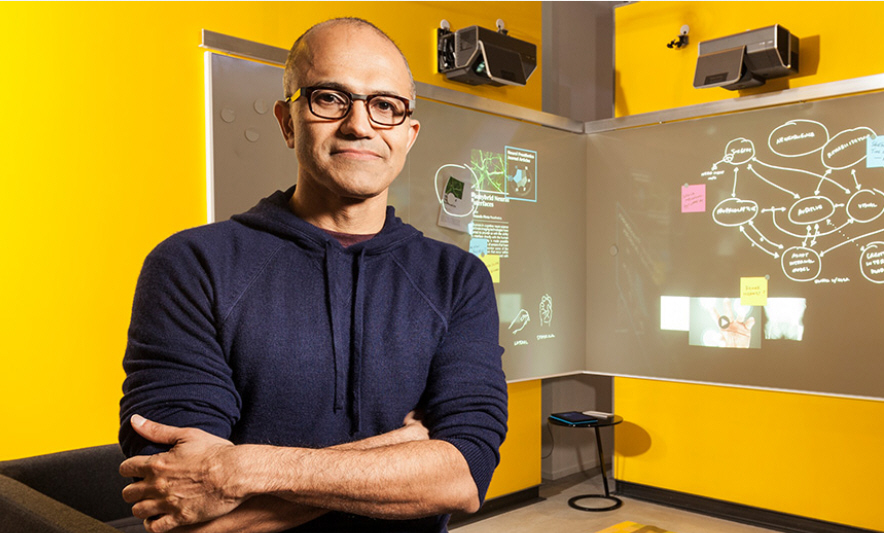
Microsoft Q3 2014 by the numbers: $20.4B revenue, 68 cents EPS
Today, after the closing bell, Microsoft disclosed results for fiscal third quarter, during most of which freshly-minted CEO Satya Nadella captained the ship. Of course, he carries a course set for him by predecessor Steve Ballmer, and his real impact is really quarters away. But there's a fresh presence behind the wheel and a new hat hanging in the captain's cabin. That's reason enough for Wall Street to forgive any storms the good ship Microsoft sales -- eh, sails.
For the three months ended March 31, Microsoft reports $20.4 billion revenue, flat year over year. Operating income: $6.97 billion. Net income: $5.66 billion, or 68 cents a share. All figures are GAAP.

SmartFTP debuts new ribbon-based interface, drops Windows XP and Vista support
SmartSoft has unveiled SmartFTP 6.0 (32-bit) and SmartFTP 6.0 (64-bit), a major new update of its powerful FTP client for Windows machines. Version 6 debuts a new ribbon-based interface, plus vastly improved text editor and remote browser.
It also sees a rewrite of various features, removing all legacy code relating to Windows XP, which -- along with Vista -- is no longer supported as of this release.
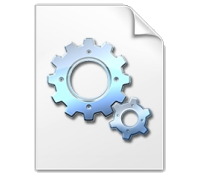
Troubleshoot application launch issues with WinPrefetchView
Prefetching is an excellent Windows technology which records the files loaded when an application starts, helping the system to optimise their launch times in future.
Normally this all happens entirely in the background. But if you’re having launch problems with a particular application, or you just want to better understand how your PC works, then NirSoft’s WinPrefetchView might be able to help. (As long as you’re not using an SSD, anyway – prefetching is unnecessary and, probably, disabled.)

MediaPortal 1.7.0 adds Wake On LAN support, boosts stability
Team MediaPortal has released a major update of its open-source media center software for Windows. MediaPortal 1.7.0 FINAL comes with a number of under-the-hood changes that will impact the program going forward, including future plans for a home screen editor within the MediaPortal itself.
The new build also promises enhancements to the TV and video On Screen Displays, a new Wake On LAN feature and support for accessing information about video files automatically.
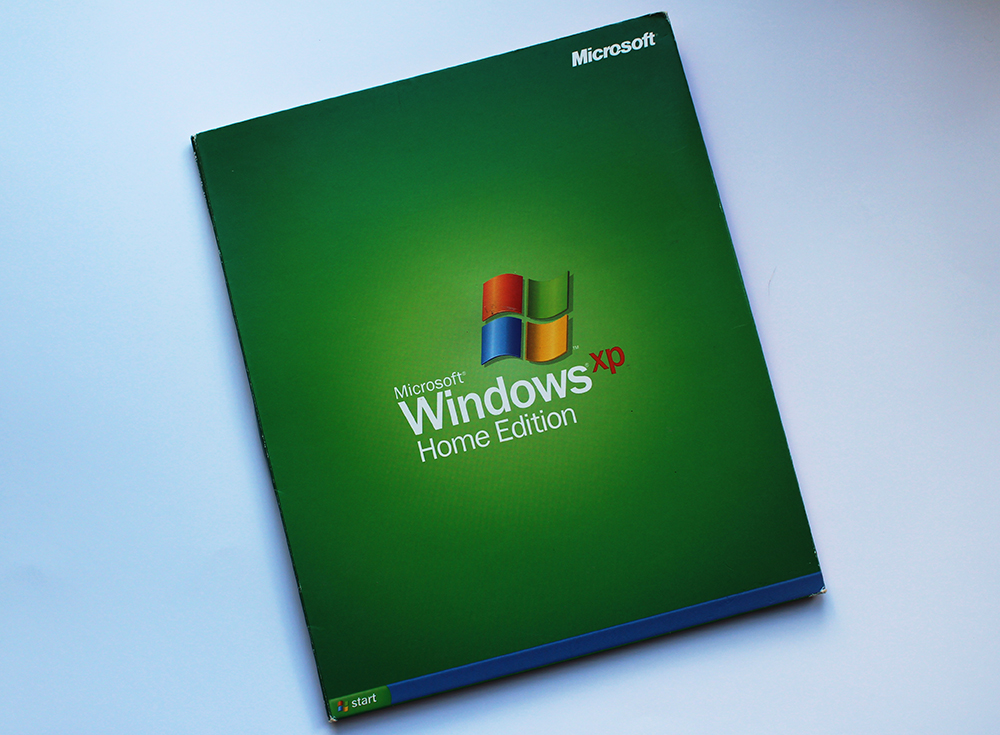
Windows XP user survey shows little hope for change
Last week was the much talked about XPocalypse, meaning support came to an official end for XP, despite a large number of users, both home and business, still running the operating system. It seems that this setback isn't doing much to daunt those users, either.
Security firm Avast has released a survey it conducted just before April 8th, and results will be disappointing to Microsoft. Many customers plan to stick it out with the aging platform.

Windows XP upgrades give global PC shipments a (small) boost
IDC and Gartner have released their worldwide PC shipment estimates for the first quarter of 2014 (1Q14), and as expected they once again show a year on year decline, but the severity of the drop has eased compared with the past seven quarters -- thanks, in part, to XP users upgrading their aging systems.
"The end of XP support by Microsoft on April 8 has played a role in the easing decline of PC shipments," says Mikako Kitagawa, principal analyst at Gartner. "All regions indicated a positive effect since the end of XP support stimulated the PC refresh of XP systems. Professional desktops, in particular, showed strength in the quarter. Among key countries, Japan was greatly affected by the end of XP support, registering a 35 percent year-over-year increase in PC shipments. The growth was also boosted by sales tax change. We expect the impact of XP migration worldwide to continue throughout 2014".

Microsoft: Azure? Windows? Heartbleed? No way, maybe if you're using Linux
You will have heard by now that a major vulnerability in the OpenSSL library was just made public. Called Heartbleed, it affects the security of a huge number of cloud services and sites as well as various products, like operating systems and apps, which have employed it during the past two years. The impact can be devastating, as there is no way of telling if Heartbleed was exploited, or how much data may have been stolen so far.
A number of companies have already announced the patching of their OpenSSL-toting services and products. Google was among the first to do so, yesterday. Evernote, however, just revealed that its users are not affected. Microsoft has also decided to shed light on whether Heartbleed impacts its users, saying that Windows Azure, Microsoft account, and Windows are immune.
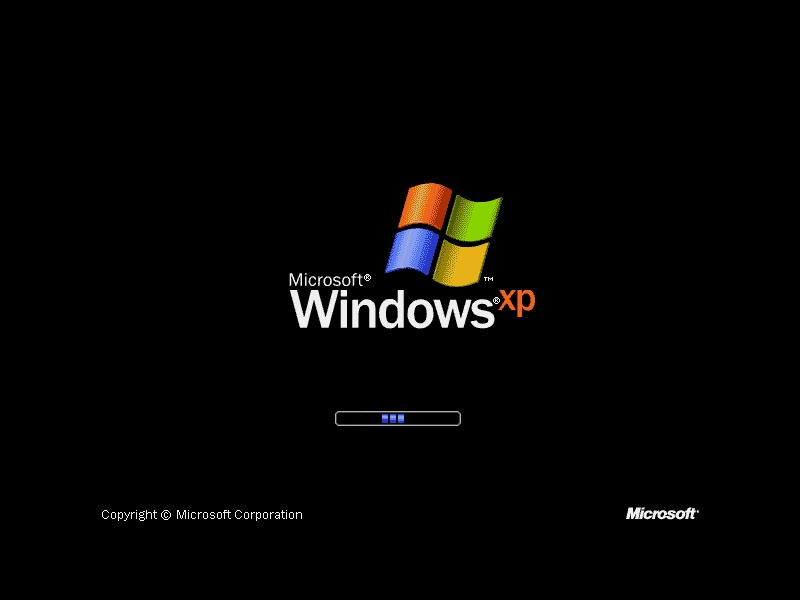
Some thoughts on the passing of Windows XP
It may be hard to believe but there was a time when people looked forward to new versions of operating systems. Before Windows XP many PC operating systems were not very good. The developers of applications had to code around problems. Companies wanted their business applications to be more reliable. Over the years operating systems improved.
Before Windows XP Microsoft had two PC operating systems. One was the descendant of Windows 95 the other of Window NT. In the years that preceded Windows XP Microsoft incrementally improved the user interface on the Windows 95 side and the reliability and performance on the NT side. Windows XP was the convergence of the best of both. Before XP Microsoft released a new version of its operating system almost every year. It would be almost 6 years until a successor to XP -- Windows Vista -- hit the market (with a thud). Six years was an impressive accomplishment, but still XP lived on. Windows Vista was not the market success Microsoft expected. Vista introduced too many changes. The market chose to stay with XP. It would be another two years before a true successor to XP emerged in Windows 7.
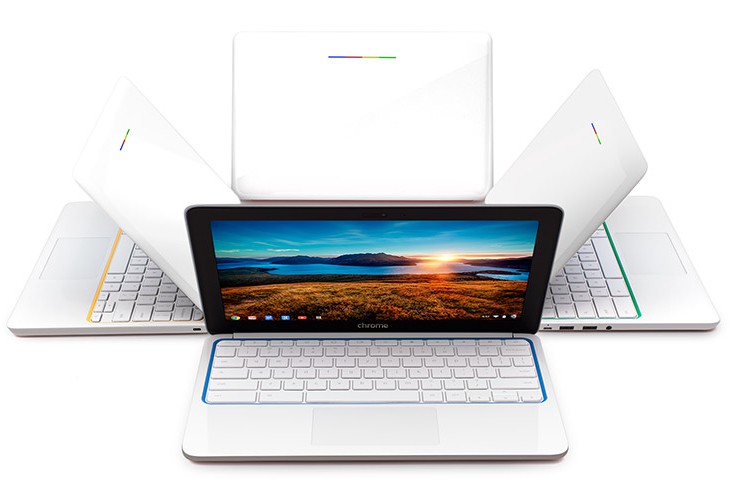
As Windows XP expires, Google urges Chromebook adoption
Support for Windows XP comes to an end today. Despite that, there are still a fair number of customers continuing to run the aging operating system. While those customers may be a bit sad about the demise, not everyone is.
On the heels of my colleague Joe Wilcox touting Chromebook, Google does the same. The company is taking advantage of this situation to lure current Windows XP users over to its Chromebook platform. In fact, the search giant is using the company's own PR against it, stating "even Microsoft admits: it's time for a change". That statement is followed by an image of an aged computer, complete with CRT monitor.
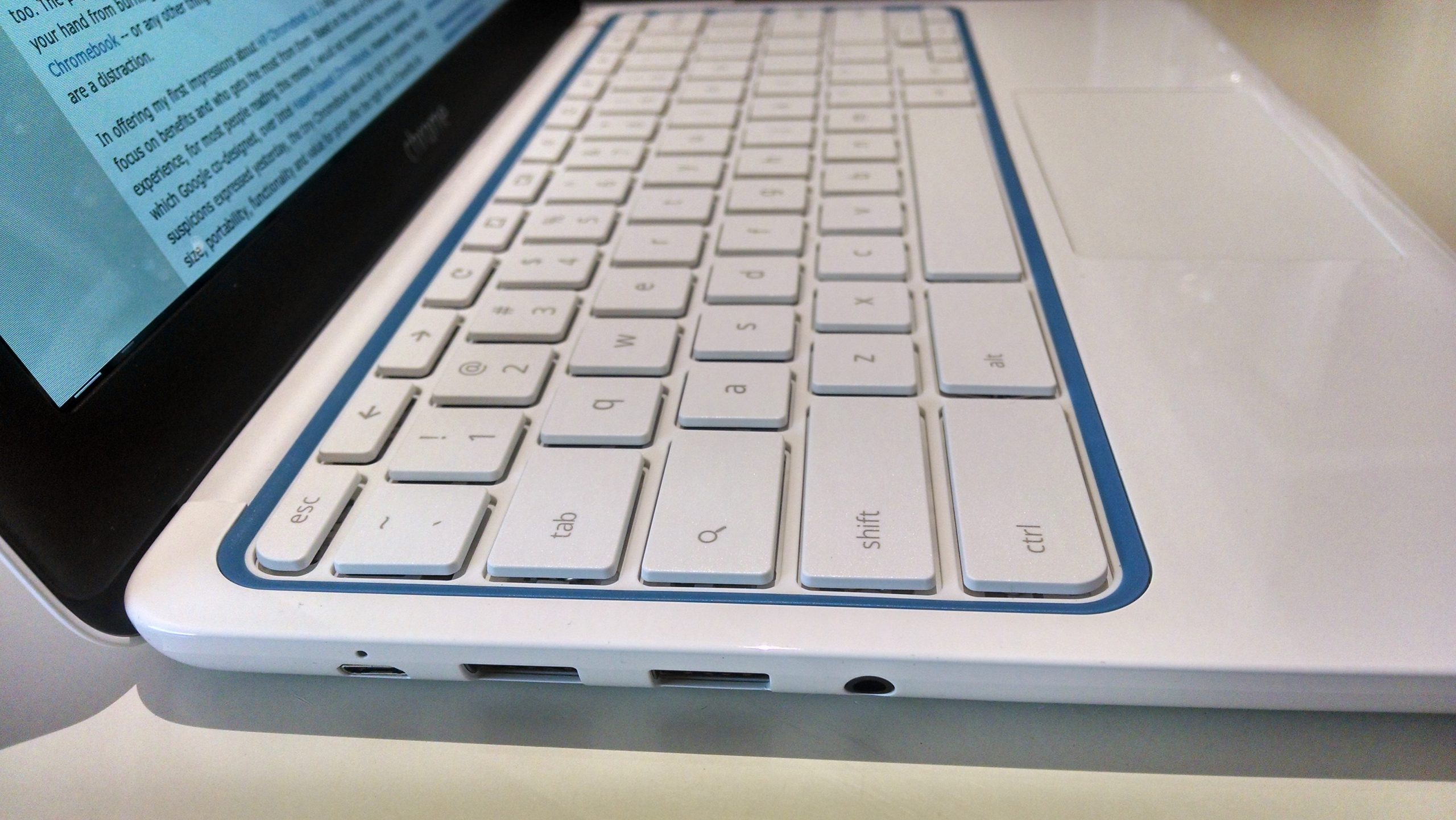
Hello, Chromebook!
Today Mihaita Bamburic bids "Goodbye, Windows XP!" Meanwhile, Wayne Williams walks down eXPerience memory lane. For good reason: This week, Microsoft pulls the life support plug -- following many, many, many delays. Henceforth, you use XP at your own risk, or forcibly march forward into the second decade of the 21st Century. You could follow Microsoft to Windows 8.1, or be truly courageous. Mac or Linux laptop are options, or you could go Chromebook. Yeah, you read right.
Here in the United States, Best Buy will trade in your XP clunker and give "minimum of $100 toward the purchase of a new Windows computer, Apple computer or Chromebook". The offer ends April 19, so hurry. The cash back will practically pay for a new Chromebook, which costs so little and does so much -- surely more than your XP wheezer. Someone from the Windows division once told me that O2, as in Oxygen, was one of the runner-up names for XP. How fitting. Your old machine has been living off oxygen for far too long. Pull the plug. I'll give you some reasons why Chromebook.

XP was the Windows 8 of its day -- but things turned out all right in the end
Although millions of people will continue to use Windows XP after today, the 'end of life' milestone is still hugely significant. It’s the official end of a very long era for XP.
I remember the operating system’s launch clearly. It took place on Thursday, 25 October, 2001, with events coordinated globally across 63 cities. Microsoft chairman Bill Gates hosted the New York launch, while CEO Steve Ballmer presided over the London event. I attended the latter which was held at the Royal Festival Hall on London's South Bank. Security was very tight -- attendees were searched going in, and our bags were X-rayed -- this was a high profile event, and with the horrors of 9/11 still very raw in everyone’s minds, the organizers were taking no chances.

Good-bye, Windows XP!
As I try to start this article with a bang, I realize how difficult it is to describe exactly how I feel about Windows XP as it is being put out to pasture today. On one hand the operating system is nearly 13 years old and long outdated, but on the other hand my early PC days are linked to it.
Around 2001, back when Microsoft introduced us to Windows XP, I was jumping back and forth between Windows 98 SE and Windows ME. I liked both, for different reasons. The former was fast and I had every driver that I needed for it. The latter felt more modern. (Well, anything felt more modern than Windows 98 to me, to be honest.) But after I had a taste of Windows XP, I never looked back. It looked like the future of PCs, and I simply could not resist the sight of that new UI.
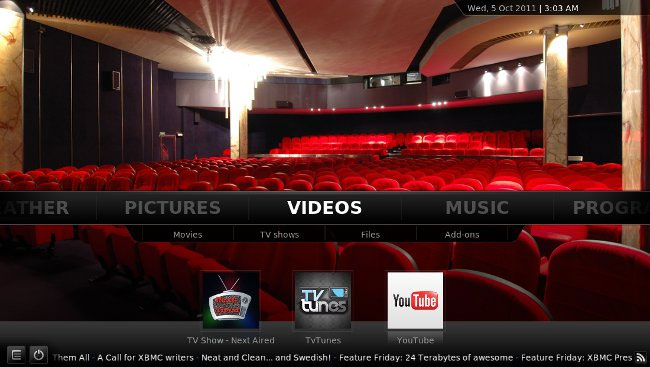
For HTPC folks, XBMC recommends an upgrade from Windows XP to Linux
It's doubtful there are many people out there at this point that don't already know that support for Windows XP will come to an end tomorrow, April 8th. Despite that, a number of individuals and businesses will continue to run the operating system.
This doesn't likely apply to those maintaining an HTPC, as this tends to be a more geek-savvy set, but no doubt a few are out there. For those users, XBMC has passed its judgment, and the verdict is Linux.

What are XP users planning to do as 'end of life' looms?
With XP’s end of life imminent, you’d imagine users of the 13 year old OS would be scrambling to upgrade, but as NetMarketShare’s latest statistics show, that’s not the case at all. There have been a lot of XP-related surveys produced lately, and the results make for interesting reading.
IObit surveyed 5,000 XP users and found that 61 percent of them were keen to stay with the OS. The company, which has just released PCtransfer to make the transition from one PC or OS to another a little bit easier, also found that 57 percent of users were put off by upgrading because of the fear of losing important data. 38 percent of those surveyed cited the time it would take to make the switch as the main reason for avoiding the task.

Want a second opinion on how badly Windows 8.x is doing?
This year’s Build developer conference is set to get underway shortly, and Microsoft will, among other things, be introducing a major update for Windows 8.1 designed to make it more appealing to keyboard and mouse users.
Yesterday I reported on NetMarketShare’s breakdown of desktop operating system market share in March, which showed XP losing some ground, Windows 7 growing nicely, and Windows 8.x creeping upwards still, but very slowly. Today StatCounter releases its figures, and while the percentages are different, the overall picture remains just as gloomy for Microsoft’s tiled operating system.
